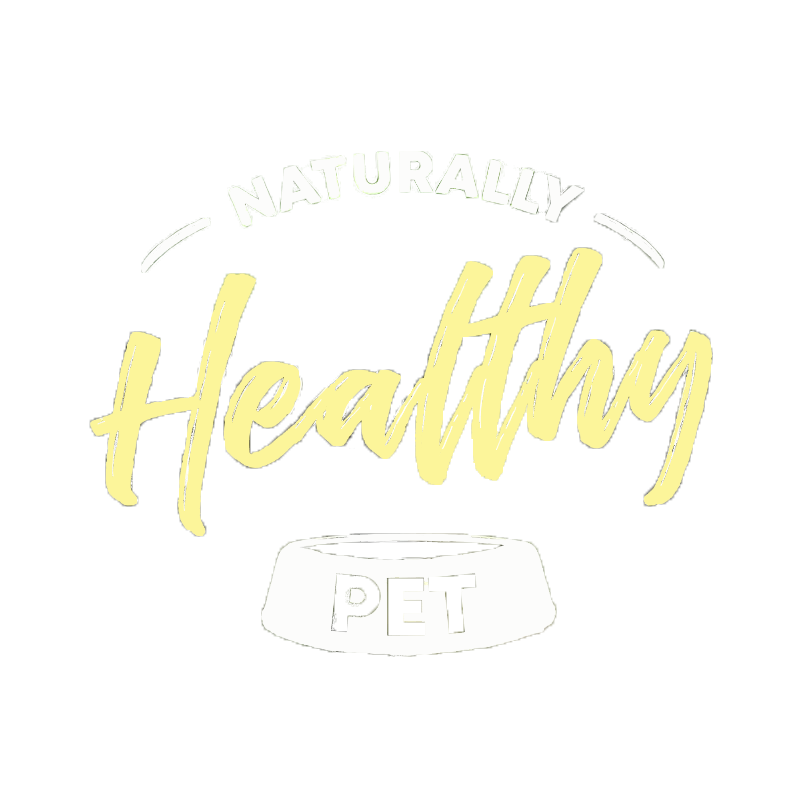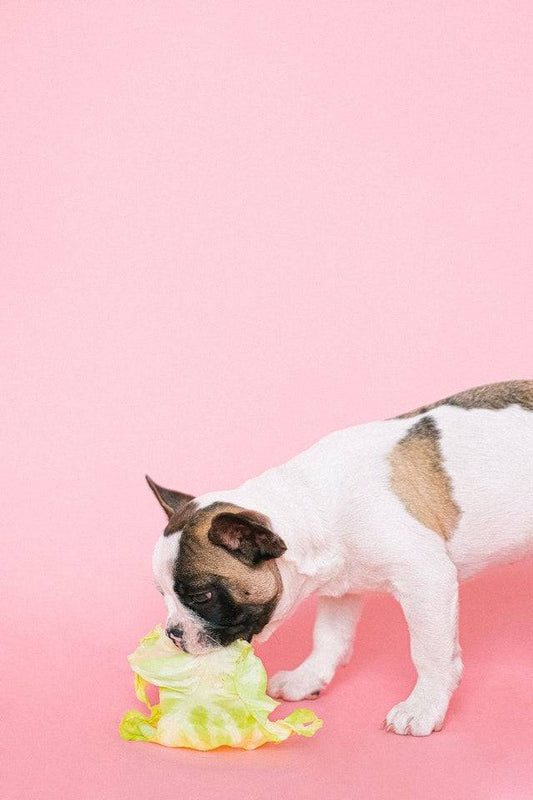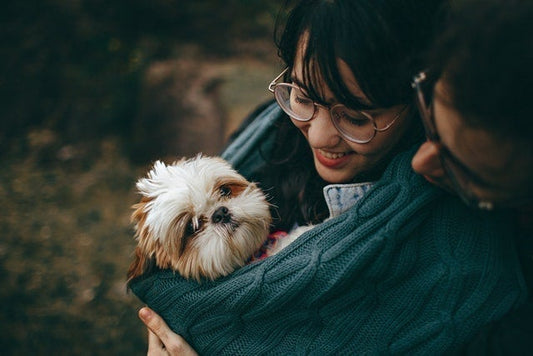They would scavenge to begin with, and in time, revert back to their instinctual natural behaviour in order to survive - some would form packs and others would stay single or pair up and they'd raid chicken coops, bring down young and weaker animals like lambs, sheep, pigs, turkeys etc., catch chickens, rabbits, mice and fish.
They might eat fruit and some veg, and they would scavenge from any people nearby also.
In short, they would eat a fresh diet of any raw animal parts of herbivorous prey, and supplement it with fruit and veg, and whatever else they could scavenge.
So, what is a natural canine diet ?
Taking into account that commercial petfood, which is designed for an omnivorous digestive tract, not facultative carnivores like dogs are, has only been around since the 1960's, this hasn't given the dog enough time to fully evolve to that kind of grain-based, carb-rich diet (as evolvement takes 1000's of years), but it has adapted to an extent to be able to survive on those kinds of diets.
Merely 'survivng' is a LOT different to 'Thriving', and to have optimum health and as little ill-health as possible, we aim for a diet where your dog will Thrive.
To find the diet your dog will Thrive on, we look to what dogs were fed prior to the advent of commercial petfood, and find they were largely fed whatever their owners ate, or, more often, the raw scraps from when owners were making their own dinners, with many also being lucky enough to have been fed raw tripe and scraps from the butchers, and then we add to this, how we know wild dogs eat, and this gives us a pretty good idea then of what our dogs will thrive on and obtain the most nutrition from diet-wise, with slight differences allowing for individual health challenges or known breed issues taken into account.
There are a whole range of different types of raw diet which people use, finding which suits their individual dog best, there are certain elements which apply to all, but others which differ according to the individual health challenges and can differ according to breed also.
Frequently Asked Questions :
1.What is a Natural Diet ?
Answer: A natural diet is what your dog would be eating if he/she had to live in the wild. It involves knowing canine anatomy and therefore knowing the type of diet which is naturally suited and biologically appropriate for your pet. This is small raw prey in it's most basic form with some scavenging also, but many of us cannot accommodate whole prey, so it is therefore the closest we can do to mimic this, taking in to account ratio's of bone:meat:organs etc.
It is daunting to begin with, but easy to learn, and with our support and help your dog will be happily changed over and you'll be confidently feeding a natural diet in no time.
2.How is a Natural Diet better for my dog ?
Answer: With commercial petfood, all ingredients are 'rendered' together and cooked up to such high temperatures, that extra vitamins/minerals are then added afterward as most of the nutritional goodness is lost during rendering. These extra supplements are not naturally-based as the ones in fresh raw food, but are of a synthetic nature, being produced in a lab, and so are not readily assimilated and used in the dogs system. The goodness in a natural diet is more readily and easily usable and available to the dogs body.
3.My Vet doesn't support natural diet ?
Answer: When vets are trained, very little time is spent on diet and nutrition, and so unless your vet has chosen to do extra training in this area, they are not trained and educated in canine nutrition. It is also a known fact, that it is the big petfood manufacturers who either provide or pay for their own lecturers to teach the 1 or 2 lectures that trainee vets do get on nutrition, and because of that, no education on a natural diet is included in those lectures, so they cannot be expected to know all aspects of canine healthcare or support those areas their training does not cover.
4.My Vet said bones aren't safe ?
Answer: As explained above, unfortunately a vet is not a canine nutritionist, unless they have chosen to qualify further in this field in their own time. The old myth is that bones aren't safe, but the truth is that 'cooked' bones are unsafe and splinter, as the cooking process dries them out, making them brittle, unlike raw bones.
However, it is not as easy as just giving your dog a bone and expecting them to suddenly have ancient wild instincts wake up, which is where our expertise comes in.
5.What about Bacteria on raw meat ?
Answer: There is no more bacteria on raw meat for your dogs than has been found on commercially produced dry and wet dogfood. It is no different to handling raw meat for people before cooking it - simply observe good basic hygiene rules and wash hands and all should be fine.
Natural diet feeders often comment on how they've been feeding this way for 'years' and never suffered bacterial illness before.
6.Won't it give my dog a thirst for blood ?
Answer: No, so many of us world over have been feeding this way for so many years that we'd have seen this if it was ever more than a myth, it does, however calm dogs down as the work-out their jaws get eating a natural diet means more serotonin, the hormone known to calm us, is produced.
7.How do I know a natural Diet is nutritionally sound ?
Answer: This again, is where we come in and help you learn all you need to know to simply and confidently feed your dog naturally.
8.What improvements will I see ?
Answer: Oh, how long do you have ? ;o)
Your pet will trim down and become muscled and toned, they will have lovely clean teeth that never need cleaning, and fresh breath. They will have smaller, firm, easy-pick-up-able stools, glossy coat, be calmer and satisfied and over-all healthier - this is just a few.
We have also had dogs who suffered with seizures, pancreatic issues, aggression, skin problems and more health issues which all cleared up on their own very quickly or significantly improved just from the change to a natural, raw diet!





